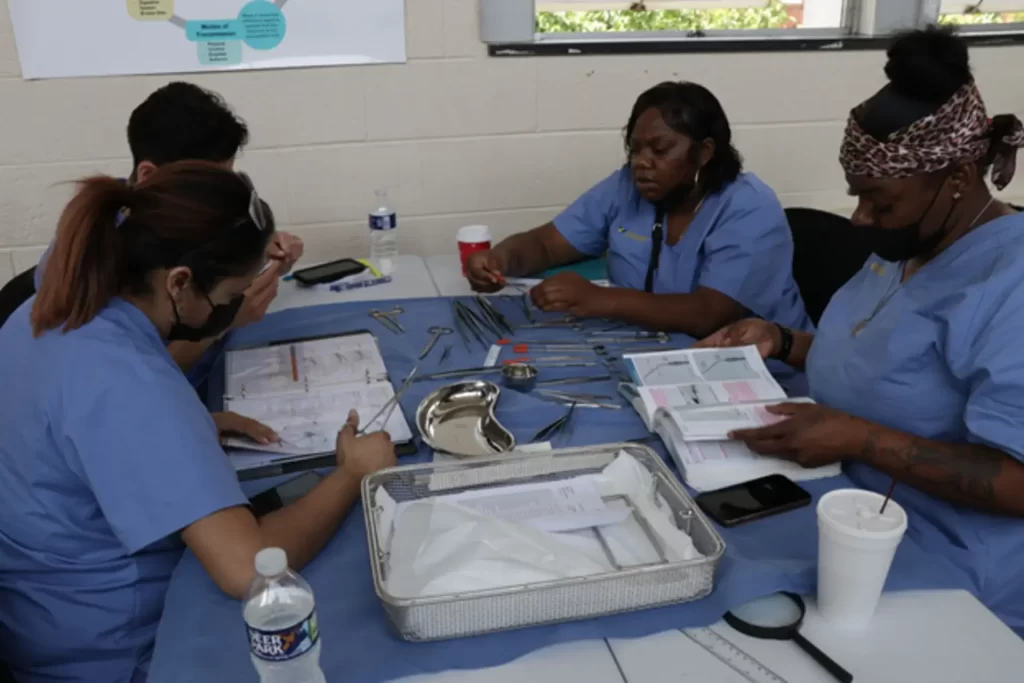Maintaining a safe and sterile environment is of utmost importance in the healthcare industry. This is where sterile technicians play a crucial role. These skilled professionals ensure that medical instruments, equipment, and supplies are adequately sterilized and ready for use. If you want to pursue a career in this field or enhance your existing skills, sterile technician training is essential. This article will discuss five strategies for preparedness and rapid response in sterile processing training.
When embarking on your journey to becoming a sterile processing technician, acquiring the necessary certifications is crucial. Certifications enhance your knowledge and skills and make you more marketable in the job market. Look for accredited training programs that offer sterile processing certification near you. These programs provide comprehensive training on sterilization techniques, infection control, equipment handling, and regulatory compliance. You demonstrate your commitment to excellence in sterile processing by obtaining a recognized certification.
Enrolling in a sterile processing technician program is a wise decision to develop a strong foundation in sterile processing. These programs provide in-depth knowledge and practical training in all aspects of central sterile processing. You’ll learn about sterilization methods, equipment maintenance, inventory management, and quality assurance. Additionally, these programs often include hands-on training in a simulated sterile processing environment, allowing you to practice your skills under the guidance of experienced instructors. By completing a comprehensive program, you’ll be well-prepared to tackle the challenges of sterile processing.
While certification programs are valuable, obtaining a sterile processing technician training certification takes your skills to the next level. Professional organizations such as the Certification Board for Sterile Processing and Distribution (CBSPD) and the International Association of Healthcare Central Service Materiel Management (IAHCSMM) offer these certifications. Achieving certification requires passing a rigorous exam that assesses your knowledge and understanding of sterile processing principles and practices. Becoming a certified central service technician demonstrates your expertise and dedication to maintaining the highest patient safety standards.
In the field of sterile processing, new technologies and techniques emerge regularly. To stay ahead, it’s crucial to stay updated on the latest trends and advancements. Attend conferences, workshops, and webinars related to sterile processing technician certification. These events provide valuable insights into cutting-edge sterilization methods and best practices. Additionally, subscribe to industry publications and join professional networks to access relevant articles, discussions, and forums. Continuous learning and staying informed about industry developments ensure that you’re well-equipped to handle any challenges that come your way.

For those seeking a comprehensive and specialized education in sterile processing, sterile technician processing universities are an excellent option. These institutions offer advanced courses and degree programs specifically designed for sterile processing professionals. Sterile processing universities provide a deeper understanding of sterile processing principles, research methodologies, and leadership skills. Graduates from these programs are equipped to take on roles such as sterile processing managers or educators. Consider sterile processing university if you’re looking for a career path beyond the technician level.
In conclusion, sterile processing technician certification and training are essential for anyone aspiring to work in central sterile supply processing. By seeking certification, enrolling in a significant service technician program, and pursuing continuous learning, you’ll be well-prepared for the challenges of sterile processing. Stay updated on the latest techniques and consider advanced education options such as sterile processing universities. You can contribute to maintaining a safe and sterile healthcare environment with the proper training and a commitment to excellence.
Read More:
Find a sterile processing trade program now!Discover Program

Search no more for sterile processing trade programs of your interest.
